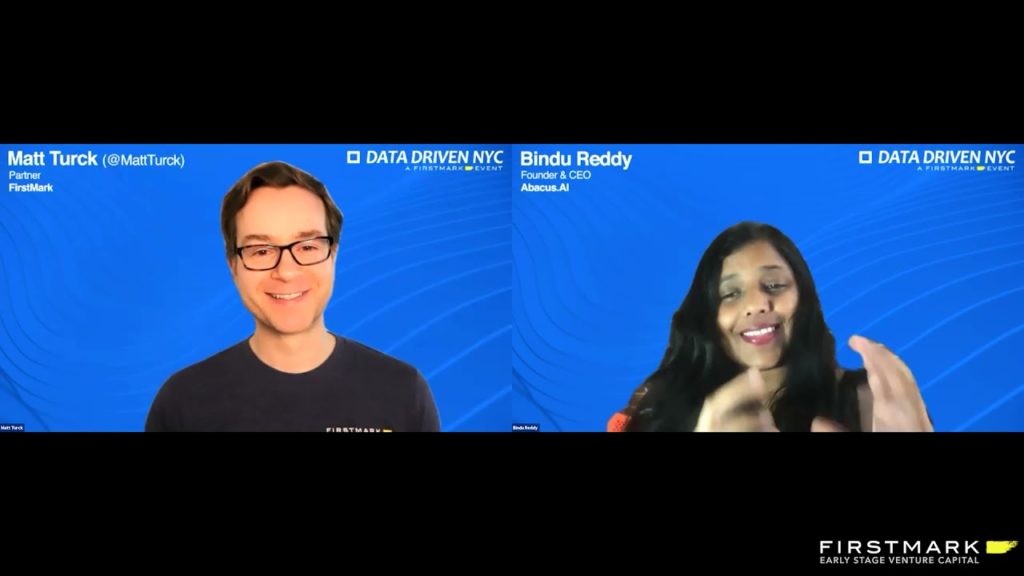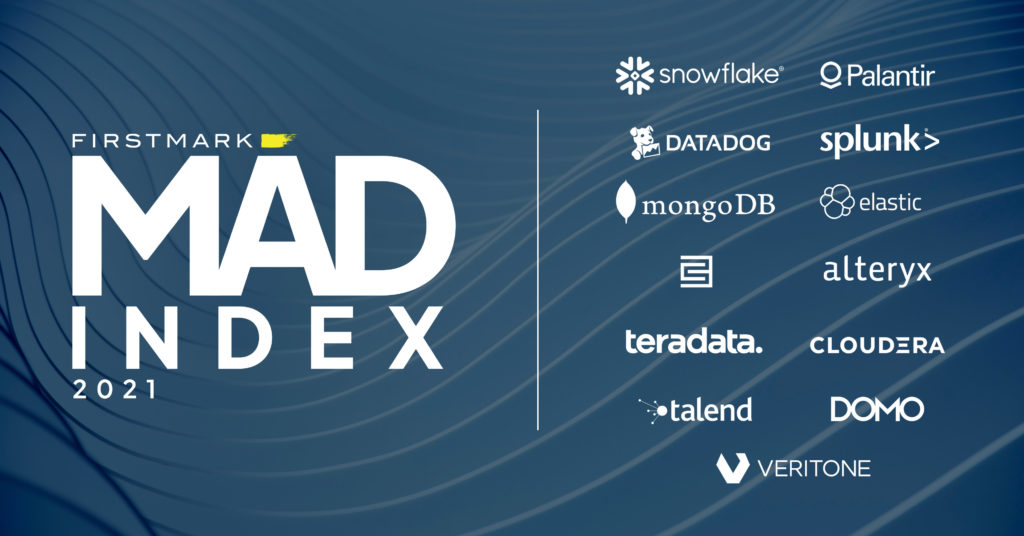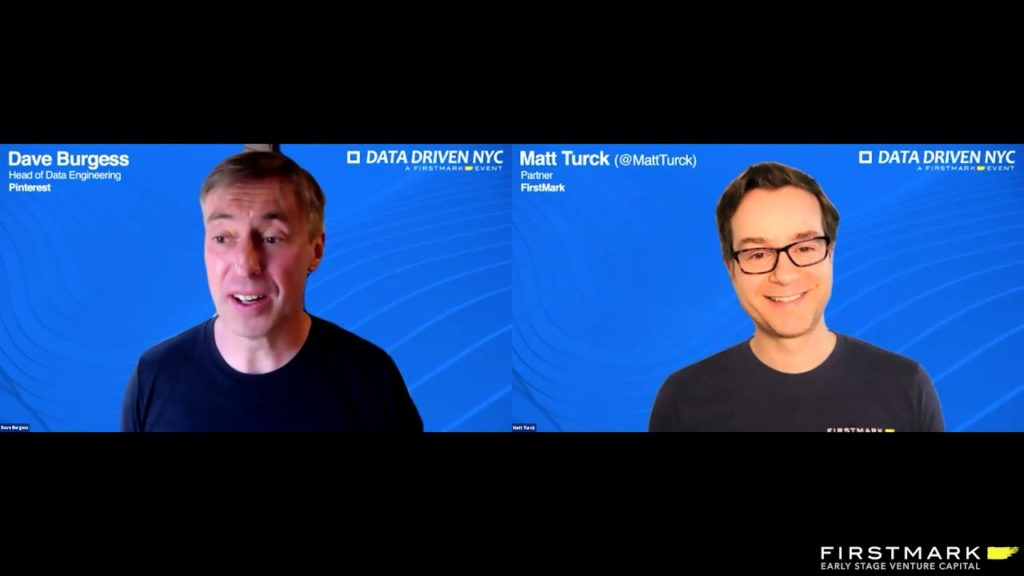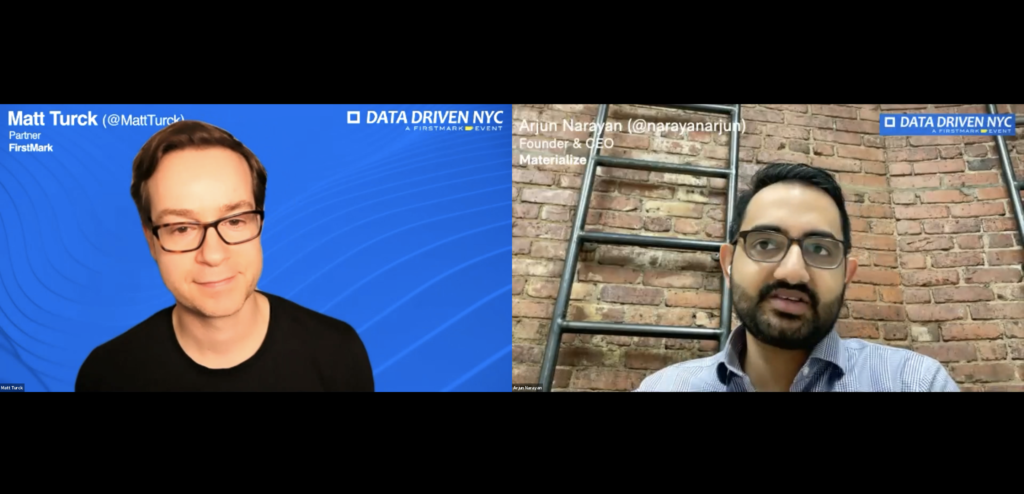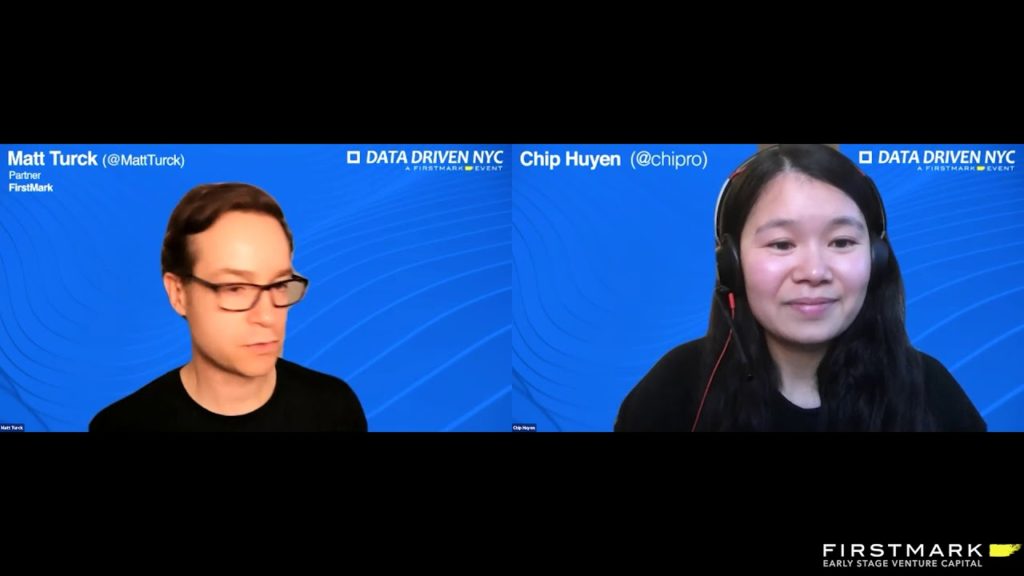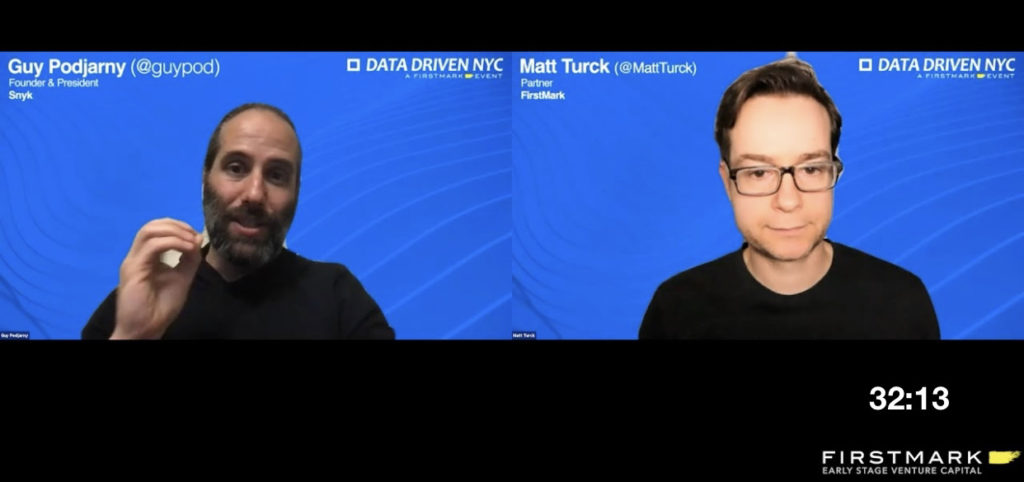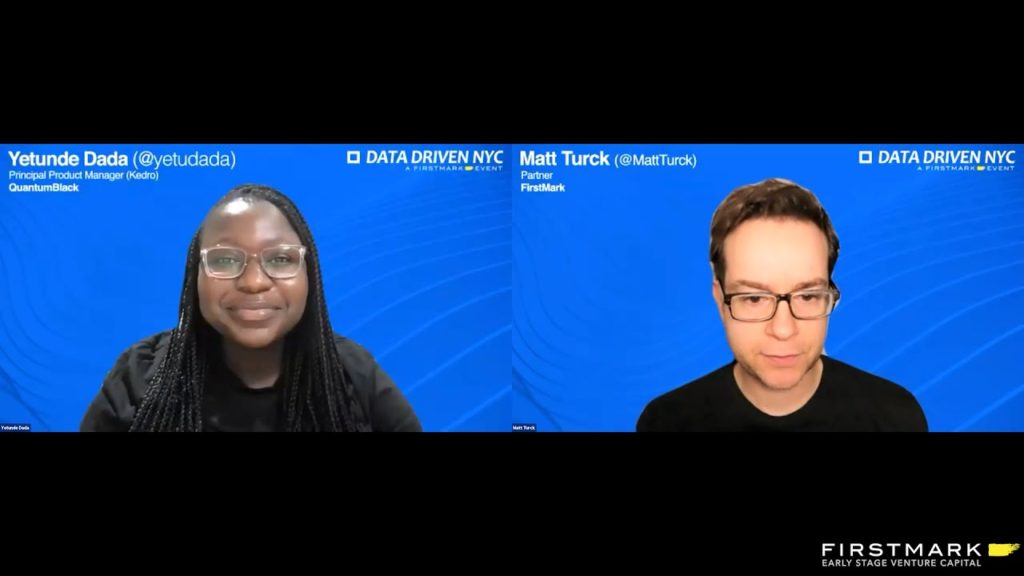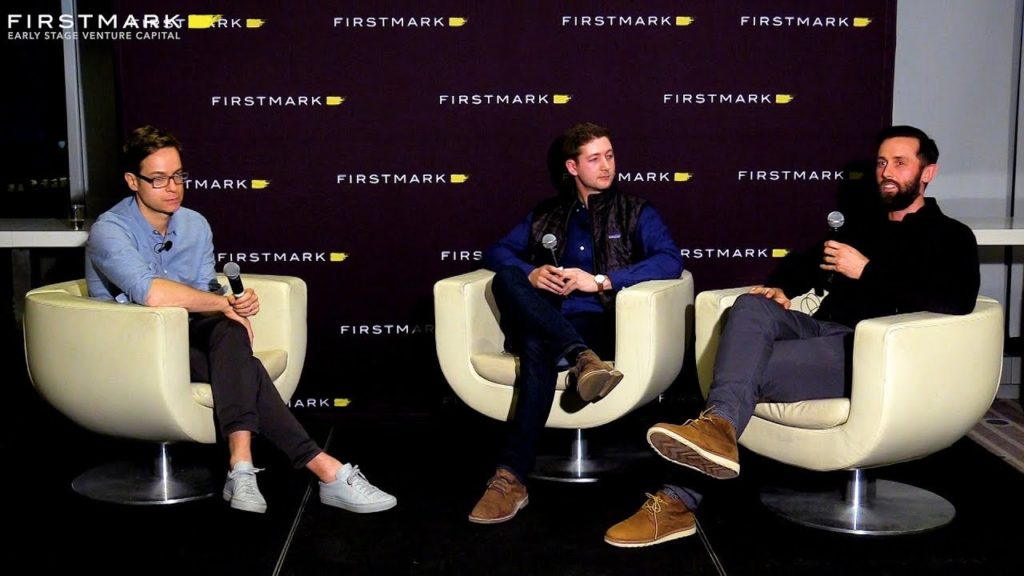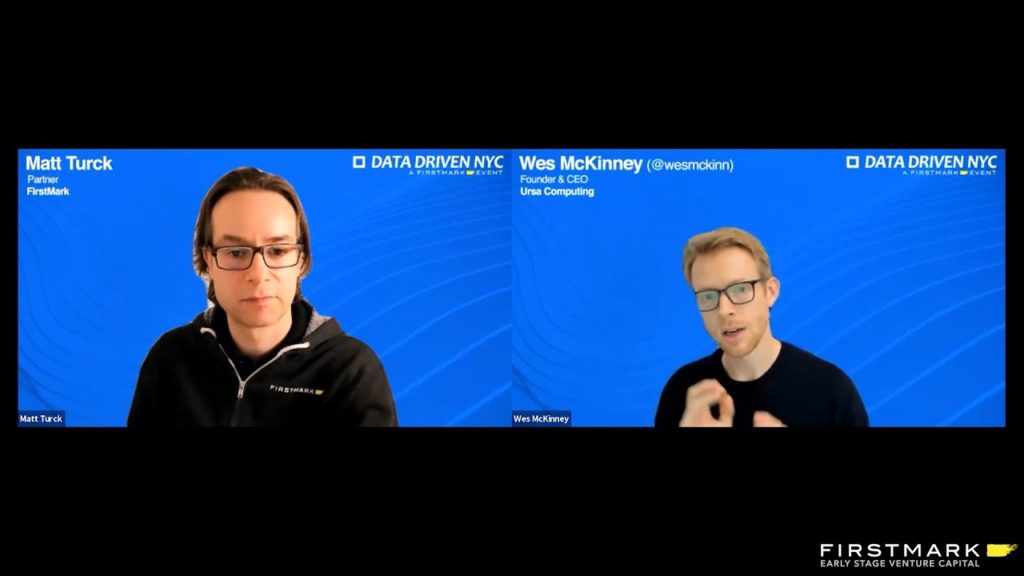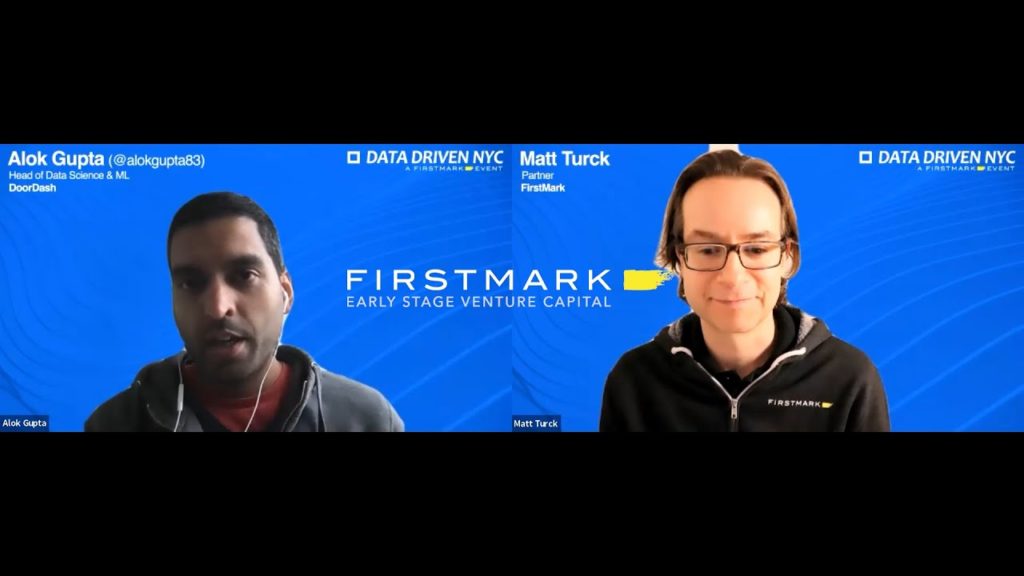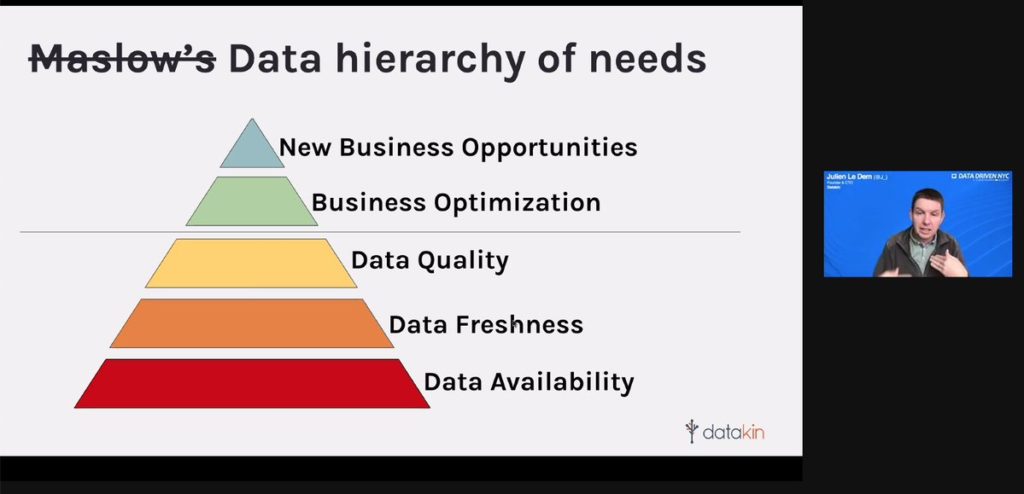
Dataiku (in which I’m a proud investor and board member) has had an impressive ride over the last few years. An early entrant in the enterprise Data Science and Machine Learning platform category, the company successfully expanded from its French/European roots to build a very strong presence in the US (where it is company is now headquartered) and, increasingly, Asia.
Along the way, Dataiku:
- became a unicorn, most recently raising a $100M Series D in 2020
- was named a “Leader” in Gartner’s Magic Quadrant for Data Science and ML Platforms in both 2020 and 2021
- collected many accolades, such as CB Insight’s “AI 100” and several of Forbes lists: “Cloud 100”, “AI 50” and “America’s best startup employers in 2021”
It was really fun to host CEO Florian Douetteau at Data Driven NYC once again, after previous appearances in 2016 (here) and 2018 (here). We covered a bunch of different topics, including:
- What enterprise AI is about: not flying cars, but optimizing hundreds of business processes
- Why enterprises need to move past their fear of data and AI
- The key principles behind the design of the Dataiku platform: handling the entire data lifecycle, and democratizing data/AI across teams
- Dataiku’s partnership with Snowflake
- The upcoming launch of their starter / SMB self-serve product, Dataiku Online
Below is the video and below that, the transcript.
Continue reading “In Conversation with Florian Douetteau, CEO, Dataiku”